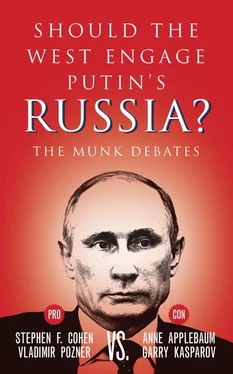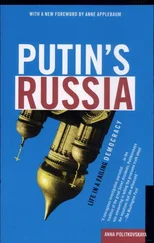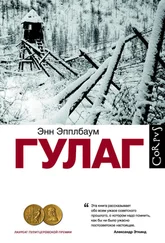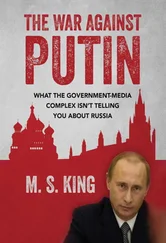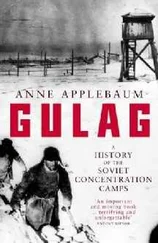VLADIMIR POZNER: I am very concerned, especially because to whose advantage is it really to isolate Russia? Who wins from that? And my argument is going to be that isolation makes countries worse off. The Soviet Union is a good example of that. Non-recognition and isolation allowed Stalin to do things that he would not have been able to do had there been engagement. And I want to make it very clear that engagement and appeasement are not at all the same thing.
RUDYARD GRIFFITHS: Look at the relationship today from the lens of what’s happening in Ukraine. I’m sure your opponents tonight are going to say that the global community can’t support the Russian actions first in Crimea and now in the eastern regions of Ukraine. Russia has behaved in such a way that it has in fact labelled itself as a rogue state, and it should be treated as such. How are you going to respond to that line of criticism?
VLADIMIR POZNER: Well, if that line of thinking does come up, I would say that, first of all, Russia sees what is happening in Ukraine as a threat. It sees Ukraine becoming a member of NATO in the future, meaning that NATO would be on Russia’s southwestern border. And in the case of Crimea, had Crimea remained in Ukraine, its most important naval base, in Sevastopol, could have become a NATO or American naval base.
It sees all of this as a threat. Look back to 1962, when the United States did not allow the Soviet Union to base its missiles in Cuba, although the two countries had agreed to do it. The U.S. didn’t have jurisdiction in the area, but it said it wouldn’t permit the missiles nonetheless. The country threatened to sink the Soviet fleet because officials viewed the actions as a threat to their national security and thought, to hell with international law.
It’s pretty much the same thing today. I don’t think any of this would have happened if there had been some kind of guarantee that Ukraine would not become a member of NATO for the next thirty years. I think there is a real fear of NATO in Russia. Why does it exist now? There is no more Soviet Union; there is no Warsaw Pact. Who is NATO being used against? Who is the threat? If it’s Russia, then come out and say so. But they’re saying, Well, it’s about North Korea and Iran, and you know people don’t bite.
I want to make this very clear. I am not a Putin supporter at all. I think that some of the things that were done were completely wrong, but that doesn’t change my attitude about engagement. If you don’t engage, more of this is going to happen. On the other hand, you have examples like Kosovo. NATO bombed Yugoslavia but nobody allowed it, not even the UN. Kosovars, who had always been part of Serbia, suddenly became independent, and everybody started saying, That’s fine, but then why can’t others do the same thing?
The world has come to a point where might actually means right. Whoever is the strongest does whatever it wants. And today, the United States is the eight-hundred-pound gorilla, there is no doubt about that. And Russia is very concerned, correctly or incorrectly.
RUDYARD GRIFFITHS: Talk to us about how the average Russian is looking at this situation. Is this feeling registering not just in the Kremlin, but also on the streets of towns and cities across Russia?
VLADIMIR POZNER: Of course. This has also been part of the propaganda. The major television outlets in Russia, the so-called federal channels, are either owned and operated, or just operated, by the government. And so the picture that people get of the world and what’s happening inside the country is a Kremlin-organized picture. That is the definition of propaganda, and it’s pretty effective.
But people are not stupid. Remember what Lincoln said: “You can fool some of the people but you can’t fool them all the time.” Reaction to this propaganda probably would have been different if the Russian people didn’t also have the feeling that the West kind of had it in for Russia; they said, You lost the Cold War. Shut up. Go back into your cave. You’re a second-rate power and we don’t care about you. It would have likely been different if there hadn’t been that feeling of being disrespected and disregarded as a great nation.
Today, anti-Americanism in Russia is far higher than during the Cold War. Anti-Americanism used to be against the American government and the American system — today it’s against Americans. They are seen as the enemy. And on the other side of the equation, you have over 80 percent of Russians supporting Putin. That poll was conducted by a very respectable independent organization called the Levada-Centre.
RUDYARD GRIFFITHS: And finally, where does this conflict go from here. Let’s say you’re right. And let’s say the West can find its way through to a new “engagement” with Russia. What would that look like? And are you optimistic that it could bear some results in the immediate or near future?
VLADIMIR POZNER: I’m not optimistic. I don’t think it can happen while Obama is president of the United States, because it would mean loss of face, among other things. I don’t think it can happen when Putin’s the president of Russia, because there is a profound distrust of him as a leader. He basically says you can’t trust the Americans. So I would be optimistic if there were a change in leadership in both countries. I think that would be the key to real change. Otherwise it’s going to be very slow and difficult. And as I said, I’m not optimistic. Maybe there is light at the end of the tunnel, but I’ll tell you what, it’s a heck of a long tunnel.
RUDYARD GRIFFITHS: We know that there is going to be a change in leadership in the United States in 2016. We’re not so sure about Russia.
VLADIMIR POZNER: We are pretty sure there won’t be. That’s the fact. He is playing his cards very close to his chest, as they say in poker. I mean, he’s not saying if he is going to run or not, but people feel that he will. In addition to that, sadly enough, there is no one else to turn to, as far as most people are concerned. The leader of the Communist party? That’s a joke. The leader of the so-called Just Russia party is even more of a joke. The leader of the Liberal Democrats is a clown, so there is nobody there. And the democratic opposition — the real opposition — has never been able to come together as allies and stand as a unified group.
So everyone is in his little corner with no options around. And, of course, a lot of people would say Putin has made sure that there would be nobody out there. I’d say yes and no. He has brought Russia back. Now you have to contend with Russia. You can’t just ignore her. So I am not optimistic, no.
RUDYARD GRIFFITHS: Vladimir Pozner, we are going to leave it there, but you have got a great debate set for you tonight. Thank you for coming from Moscow directly to participate in this debate. It’s great to have you here in Canada.
VLADIMIR POZNER: Thank you so much.
POST-DEBATE COMMENTARY BY EDWARD GREENSPON
Russia has long perplexed the North Atlantic alliance, not to mention its neighbours. To hear Vladimir Pozner tell it, the current angst in the West over whether and how to isolate Vladimir Putin’s Russia for its Ukrainian transgressions is not only wrong-headed but part of a continuum of wrong-headedness dating back to at least the 1917 Bolshevik Revolution, which was followed by failed Western military expeditions against the newborn communist state.
The issue of whether the West has been too antagonistic toward Russia, or too accommodating, was one of several lively debates within the greater Munk Debate on Friday, April 10, at Toronto’s Roy Thomson Hall. The question put to the debaters — Cold War–era commentator Pozner and U.S. academic Stephen F. Cohen for the pro side and journalist Anne Applebaum and dissident chess great Garry Kasparov on the con — was “Be it resolved the West should engage not isolate Russia.” The fact that the live audience of 3,000 ended the evening split 48 percent to 52 percent speaks to the complexity of the riddle of what to do about Russia.
Читать дальше
